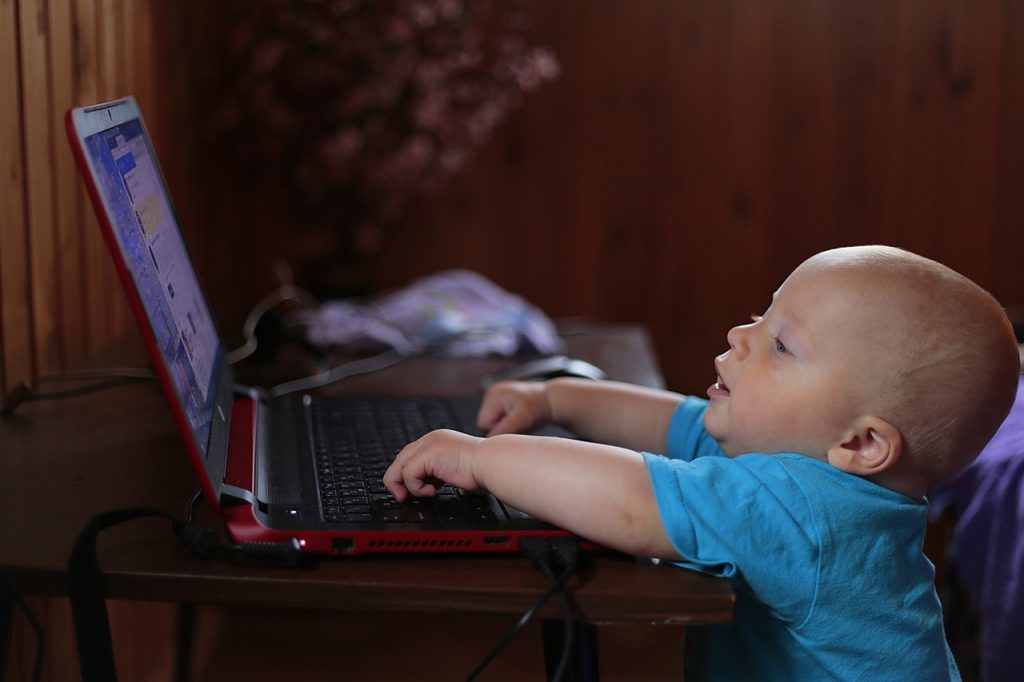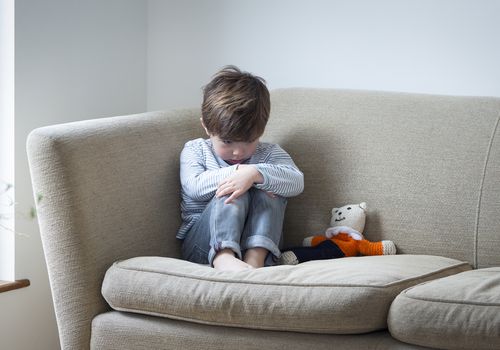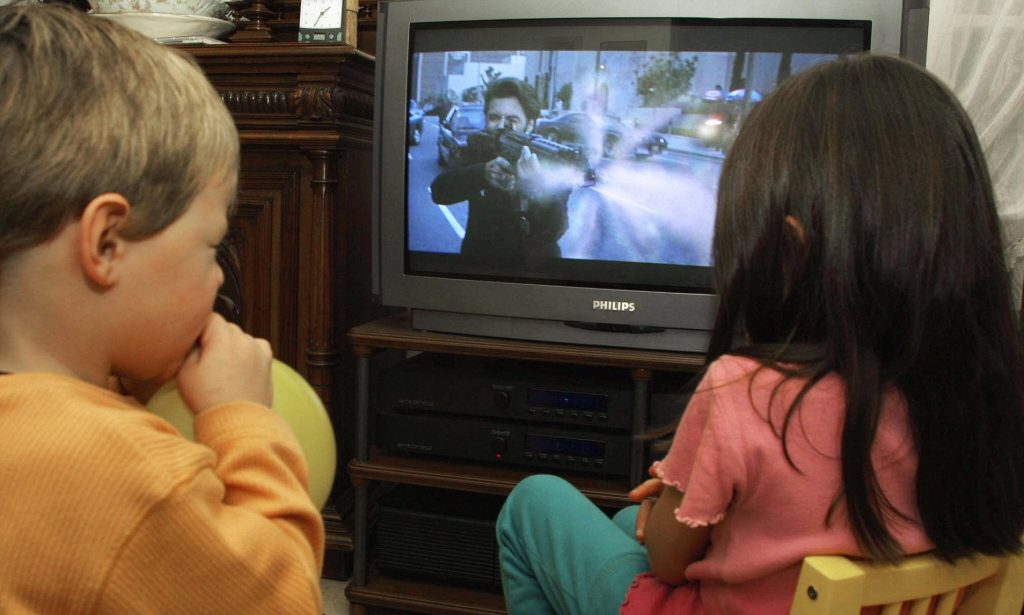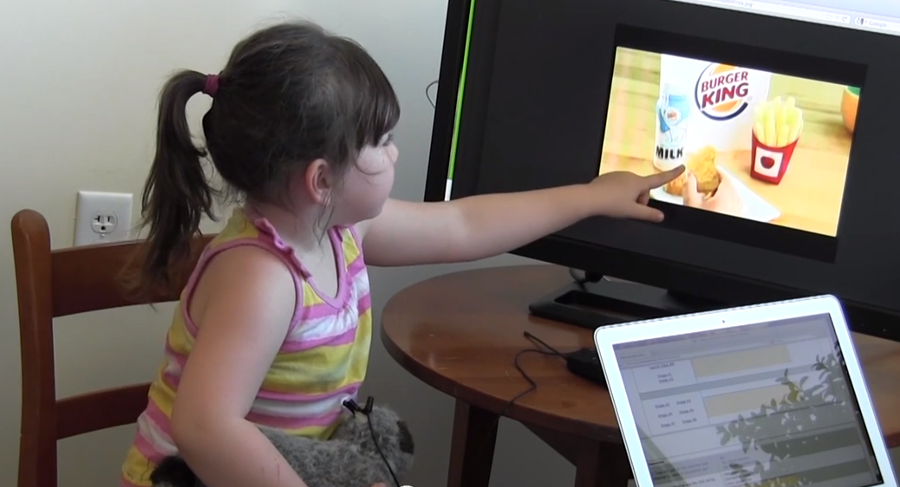In this technologically driven era with so many working parents, screen time of the little ones are gradually increasing. In order to remove their boredom, they are choosing computers, TVs, mobile phones and tabs over physical activities and games.

But this is really alarming! Because a child’s extent of physical and mental development depends a lot on his/her early days of playing, socialization, exploration of the environment, and face-to-face interactions.
So, how much screen time is optimum for your youngster? What could be the harmful effects if your child is on too much screen time? And what can you do to limit that excess screen time?
To find these answers, check out this blog!
Screen Time: Good Vs. Bad
A child’s screen time can be of two types:
Good Screen Time
A screen time that is educational and provides learning outcomes is what we call good screen time. Example: Making your child play a color game or shape game in the tab.
Bad Screen Time
A screen time that doesn’t provide any positive learning or developmental outcome is what we call a bad screen time. Example: Playing violent video games or watching violent movies in front of your child.

Since screen time plays a very crucial role in a child’s mental development so try using it for the best possible outcomes. Make sure that every time your child is on screen, he/she is learning something new and positive.
Effects of Excess Screen Time
Excess screen time can lead to catastrophic effects in the lifestyles and health of children. Some of these are:
Decreased Learning Ability
Studies have shown that children less than two years of age barely learn anything from video contents. So even if it’s like, your child is enjoying tv shows and videos at that age, he/she is just captivated by the moving figures on the screen. But in reality, he/she isn’t learning anything.

In fact, this is not only the case because excess screen time slows down the learning capability of your child resulting in lower academic performance. Thus, if not controlled timely, your child might suffer from declining memory and cognitive abilities compared to other children who have less screen times.
Decreased Communication Ability
According to Dr. Jennifer Cross, children who watch a lot of tv programs during elementary school days show decreased attention span and perform less well in reading tests. This is because face-to-face social interactions are really important for your child’s development.

As you communicate with your little one, he/she starts to get those facial expressions and reactions of yours and gradually learns how to reciprocate back to you. But this thing can’t be served by the passive tv shows which is just a one-way interaction for your child.
Hindrances in Brain Development
According to a study published in Jama Pediatrics, some significant and concerning evidence was found in the brain structure of kids with excess screen time. The researchers claimed that there were differences predicted in their brain areas, which were related to language and literacy development.
Again, according to the data from National Institutes of Health (NIH), children having more than 2 hours of screen time got lower scores on thinking and language tests. It was also found that children spending more than 7 hours on screen experienced thinning of the brain in the cortex region (The area that is related to logic and reasoning).
Excess Addiction Towards Digital Screens
Digital screens are great at providing entertainment. So, they draw you more towards them making you surf on the internet all day long. Though being an adult, you do understand the negative impacts of excess screen time and regulate them accordingly. But this is not possible for a child. And this is where the problem lies.

They become more and more addicted towards digital devices and take it as a norm if not controlled timely. Besides, parents often give their phones/tabs to their little one as a means to distract or keep him/her busy. This habit too, can lead to screen addictions where the child will prefer spending more time with screens than with human beings.
Vision Problems

Regular contact to natural day light is crucial for a child’s eyesight development. Studies have found that children who spend huge time indoors are more likely to develop myopia. And when your child is not only remaining indoors but spending that time with digital screens, it becomes all the more dangerous. Some of these complicacies could be: eye fatigue, dry or irritated eyes, eye pain, difficulty in distant-vision adjustments, damage in retina etc.
Shorter Sleep Durations

Several studies were conducted on children of 6 to 12 months of age to observe the impact of screen times on sleep durations. It was found that, children having screen exposures in the evening had shorter sleep durations than those with no evening screen times. The reason is blue light. Blue light of screens hinders melatonin secretion, which is our sleep hormone and thus hampers sleep.
Easy Exposure to Negative Contents

Children with more screen times can easily get exposed to harmful and negative contents. The list is huge but we are mentioning the very important ones, such as:
- Watching videos of violence, unsafe behaviors, risky stunts and challenges.
- Getting exposed to adult contents.
- Becoming victims of social predators and cyber bullying.
- Developing interests for intoxicant usage.
- Watching stereotypical contents and developing a narrow mindset.
Weight Problems

Excess screen exposure and sleep deprivations can result in decreased physical activities for your child. Their valuable playtime is lost and they have lesser opportunities for exploring the surroundings. This is how they gradually become accustomed to leading a sedentary life.

Now, a sedentary lifestyle not only results in lesser calorie burns but also hampers the metabolic rate of the body. Besides, a child might develop the habit of consuming snacks and beverages while engrossed in the screens. This habit is often boosted up by the enticing TV commercials of snacks and high-calorie foods. Thus, they crave more for junk foods with less nutritional value and form an unhealthy diet from the very childhood.

And this is not only the case because as your child grows up, this overweight might affect his/her self-esteem and lead to social isolations at times. Besides, excess weight gain might result in many other chronic health problems in later stages of his/her life, such as diabetes and heart disease.
Decreased Interest in Reading Books

Children who are addicted to digital screens gradually become distant from reading. Because the latter one needs more effort from their part. Flipping the pages of a book and reading letters from it might seem more strenuous for a child who is already habituated and drawn towards video/audio contents. Thus, they become unable to form reading habits and a good part of their childhood is lost watching cartoons or tv shows with zero learning outcomes.
Screen Time Guidelines: What Should You Do?
It’s necessary that you spend enough time socializing with your child and encourage him/her to engage in outdoor activities. Alongside this, it’s highly recommended that you keep an eye on both the quality and quantity of the screen time your little one is having.

Try ensuring good quality screen times that generate greater productivity and learnings. And when it comes to quantity of screen times, you can stick to the following guidelines given by the American Academy of Pediatrics (AAP):
- No screen time for babies younger than 18 months.
- Children between the age range of 18 months to 24 months can enjoy a little bit of screen time under the supervision of a parent or caregiver.
- Children of 2 to 5 years should have a limited screen time of 1 hour per day. But this too, like the previous one, needs parental supervision.
- Children with the age of 6 years and onwards should have a reasonable limit of daily screen time though AAP didn’t mention the exact time limit.

This is because with the increase in age, a child becomes different in terms of habits, social interactions, physical activities etc. So, one particular screen time limit won’t work the same for all of them. As a parent, you’ll have to ensure a screen time that is perfect enough for his/her everyday entertainment but not interrupting his/her homework, social interactions or play time. Seek help from a pediatrician in case of any confusions.
Screen Time Checklist

(N.B: This picture is author’s most favorite because it kinda reminds her of the amazing afternoon playtimes she had with her dad when she was little. Time flies…..)
Anyways, you can go through these following questions to figure out if your child is having a healthy and well-balanced screen time or not:
- Is your youngster sleeping enough?
- Is he/she happily engaged with school?
- Does he/she connect socially with friends and family?
- Is he/she physically healthy?
- Is he/she regularly doing some sort of physical activities?
- Does he/she enjoy various hobbies and interests?
- Is he/she learning and having fun from the screen time?
- Is he/she always watching quality contents on the screen?
If your most or all of the answers are ‘Yes’ then congrats! Your child is having a good screen time and a healthy lifestyle. All you need to do is just maintain this state consistently. And if your answers are mostly ‘No’ then seek the advice of a pediatrician and set some ground rules on your child’s screen time.
Concluding Remarks
Okay so, as you made it to the end of this blog, we hope you got some insights on screen times of children and it’s negative impacts. Remember that, in this era, screens are, and will be everywhere. You can’t totally eliminate them from the life of your child.

But you can always set some ground rules and control the screen time of your child. You’ll thank yourself later because a little supervision from your side can ensure a healthy future for your child. Happy parenting!


























Very informative
Thanks Shammi